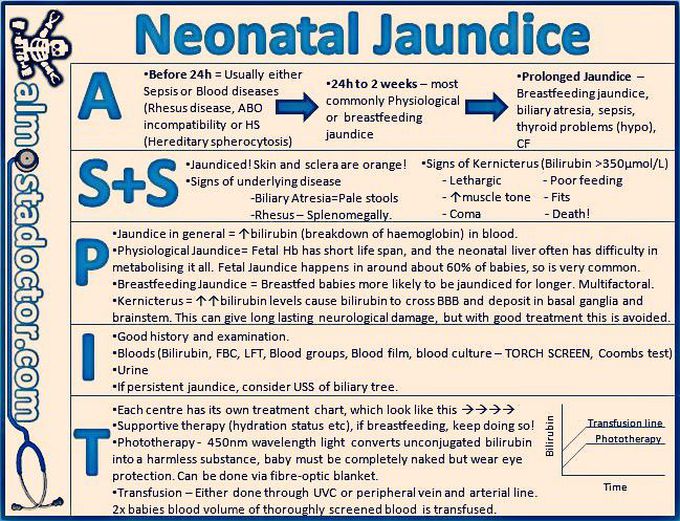


Neonatal jaundice
Neonatal Jaundice: Jaundice is a fairly common condition in newborn babies. You may know it as the condition that causes babies to turn yellow. It’s caused by a yellow pigment (bilirubin) accumulating in the body, which turns the skin and the whites of the eyes a yellow colour. Jaundice can have serious consequences if you don’t treat it, but fortunately it is very easy to treat. There are a few different kinds of jaundice that may be seen in babies. They all have one thing in common: baby’s skin and eyes are tinged yellow by the build-up of a pigment called bilirubin. Every human alive has some bilirubin in their blood; it actually has a few important functions in the body. The difference is that babies can’t always get rid of the excess bilirubin quickly enough, so they accumulate too much of it in their bodies. Bilirubin is formed when the body breaks down old red blood cells. At birth, there’s a lot of half-formed red blood cells that get broken down, so baby will have a lot of bilirubin in his blood. This bilirubin is supposed to go to the liver where it is processed (the fancy word is “conjugated”). The processing makes the bilirubin water-soluble so that it can be excreted. The liver stores the bilirubin in the gallbladder, and from there it flows into the intestines and leaves the body with the stools. (Fun fact: bilirubin is the stuff that makes your poop brown). If the baby doesn’t have regular bowel movements, and the stools stay in the intestines for a long time, the bilirubin can be re-absorbed back into the blood. Newborn jaundice can also happen when there’s an abnormally large amount of red blood cells being broken down. This can happen, for instance, if mom has a negative blood group and baby has a positive blood group. A second kind of jaundice used to be called breastfeeding jaundice, which is a silly name – I prefer the new name, starvation jaundice. It happens when baby is not breastfeeding well (so perhaps it should be called breast non-feeding jaundice?!). If baby does not take in any milk, he will not pass stools. That means that the bilirubin in the gut gets re-absorbed into the blood, and the blood levels of bilirubin get higher.
Reversible Causes for Emergent Conditionshttps://www.facebook.com/PrimalTRTOfficial/Women’s Reproductive Health & Daily WellnessFlexiLeafhttps://www.facebook.com/HumeHealthBodyPodOfficial/Pulsar Vexline Review 2026 - Legit Or Scam Trading Platform? Fact CheckGelatine Sculpt | Official WebsiteBurnSlim Official | Support Your Weight Management Journey

